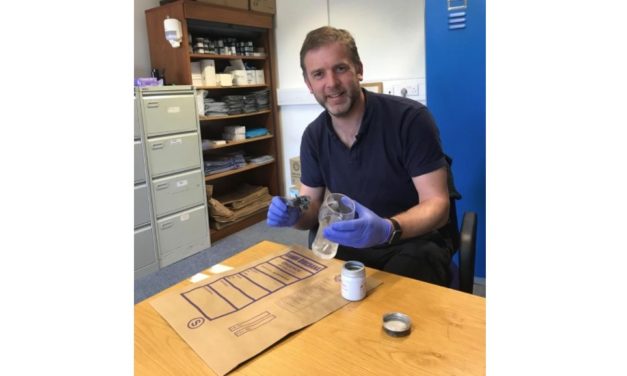Anastasiya Sytnyk is a Dublin-based woman in her early twenties.
Despite her young age, and graduating from university into a dire jobs market due to the pandemic, Anastasiya has already amassed an envy-worthy career.
So far, one of the standouts on her CV is her experience at Google, where she spent over a year working as an International Sales Development Representative.
In the second part of this series, Anastasiya talks us through what the interview process was like for her role – including how she nailed a daunting presentation that Google often ask candidates to complete if they reach the final round.
Here are her key tips;
THE FOUR STAGES
“One of the first things I’d say about Google is that they make the interview process as comfortable and easygoing as possible,” Anastasiya shares. “They let me know what to expect very early on, and outlined that there would be multiple rounds to the interview process before anyone got the job.”
After her stint at Google, Anastasiya went on to work for Slack, another giant in the tech industry. She says there were many similarities between the recruitment process there and at Google.
“With any job in tech, you’ll usually see there’s a pattern of three or four steps before you’re hired,” she explains. “The first step is always speaking to the recruiter, and you should play your cards right here! Be as honest as you like, but the worst thing you can do is badmouth your former or current job/employer. If the recruiter asks why you’re looking to leave your current role to come work for them instead, which they can often do, just say you’re looking for a job with more opportunities for promotion, or where it’s easier to map out a clear career path.
“The main thing is to always try to keep it positive and draw the conversation back to topics you’re keen to impress them with. Relate your previous experience as much as you can to the new job you’re applying for.
“Just be super friendly and open with the recruiter because they don’t judge you exactly, but they will decide from just that conversation whether they’ll put you forward to speak with the actual employer or not.”
EDGING CLOSER TO THE FINISH LINE
“The next step after meeting the recruiter is usually a mock exercise of some kind,” Anastasiya recalls. “This can be a pitch letter Google asks you to imagine you’d send to a hypothetical client, or just a piece of writing about a really strong interest or passion that you have.
“I was asked to write an email in three languages – English, Russian and Polish – because I was recruited for the job of Russian-speaking Sales Development Representative and so they needed to test my language skills. Based on that exercise, they’ll decide whether your work is strong enough or of a high enough quality to pass you on to the next round of interviews, this time with the managers.
“The meeting with the managers is much the same as your initial interview with the recruiter, but just a little bit more professional and in-depth, whereas that first conversation can be more casual or chatty. You just need to expand on whatever points you’ve previously used to do well with the recruiters,” Anastasiya advises.
THE FINAL HURDLE
If you’ve gotten this far, and impressed both recruiters and managers whilst also wowing with the mock exercise, you now move on to the final stage.
This part, Anastasiya remembers wryly, is “the most nerve wracking thing in the entire world!”
“You have to do a presentation and a role play. You’ll either be role playing with the managers at this point, or at least carrying out the role play in front of a group of Google managers. It’s very difficult, but you have to stay as calm and collected as possible. You could be playing out any scenario, depending on the position you’re applying for, but the most common ones are a hypothetical pitch you need to deliver to them or a phone call they want you to carry out with a fake, perhaps disgruntled client. Whatever they want you to do, the bottom line is that they want to see what your communication skills are like.”
This emphasis on your communication skills is a theme throughout the final stage.
“In the presentation, they’ll ask you to talk a bit about yourself, and this part has to be concise,” Anastasiya warns. “You really need to cherry pick what you want to get across to your employer. If you put down every last bit of your experience, no matter how impressive it is, they’ll still reject you because you didn’t make it concise, you didn’t make it interesting or prioritise the most relevant points.
“If you get to that final stage, you have to keep in mind that they’ve already seen your CV, probably quite a few times by now. The presentation is for you to demonstrate something else. It could be a new skill, like demonstrating some design or graphics skills in your presentation.
“The slides you use in your presentation are hugely important to Google. Are they colourful, have you added personal touches? They sometimes like to see memes on it, obviously not too many, but really clean, work-appropriate memes, because it all shows a bit of creativity!”
To fully allow for this creative expression, Google will often be quite flexible with what they’ll accept as a presentation format. Photoshop work, Canva designs and everything in between are all par for the course.
“Use whatever you’re comfortable with,” Anastasiya advises. “I personally just used PowerPoint, and tried to keep all my slides within the same theme. I kept it very colourful and made sure it wasn’t in any way cluttered or messy.
“Use VERY FEW bullet points!! I would say have, as a maximum, four to five very short, even one-word bullet points because they’re not looking for you to just read off the slides. They’re happy for you to have the slide in front of you for reference, but they really want you to talk. They just want to see how you connect with people or get your points across clearly, because that’s a huge bulk of what you’ll be doing if you are hired”.
THE TAKEAWAYS
With so many stages to get through, and with huge demand and a surplus of candidates for any position at Google, the entire process – from first applying to being hired for the role – can be very lengthy for some people.
However, this was slightly expedited in Anastasiya’s situation. “In my case, I was being hired to replace a Russian speaker. It was quite a niche role so they were in a rush to find someone, and it was a bonus that I had two other languages, so that sped up the whole process.
“Overall it took less than a month for me to get through the recruitment procedure. My first interview was in the last week of October 2020, and I was hired and had my official first day working for Google by November 23rd.
However, Anastasiya says other candidates shouldn’t lose hope if they feel the process is dragging on for them. “The whole journey to securing a job at Google will vary from person to person and depend on the vacancy, but don’t be nervous if you haven’t heard back for two or three weeks.
“Sometimes it just takes a while, especially if it’s an entry level role. Those are always very competitive, especially for UK/IE positions. I applied for a few of those jobs across a number of tech companies and didn’t get into any of them, but if you have language skills it just makes it that little bit easier.”
THE COMEBACK KIDS
Given the huge numbers applying, it’s inevitable that many people are rejected for jobs at Google. For those who make it to the later rounds of interviews, they may be left especially disappointed to hear they’ve been unsuccessful, and worse still to not know where they went wrong.
“Something you should be prepared for if you’re applying to companies as big as Google is that none of them will give you detailed feedback if you don’t get the job. There’s just too many people they have to get back to, so it’s understandable, but I’ve been there myself and I know how frustrating it can be. I think that’s what hurts people the most oftentimes if they don’t get hired, is the fact that they will get ghosted,” Anastasiya shares.
“They never give feedback, even if you specifically ask for it they may not come back to you, but recruiters usually do just send a courtesy email to thank you for applying and let you know you’re not progressing to the next stage.”
Anastasiya says this bearer of bad news can, in some cases, still be used to your advantage: “I would recommend that if you do get that email, always be sure to respond to your recruiter. Even if it’s just to thank them for letting you know, do get back to them and still try to build up as positive and friendly a relationship as you can. You never know if they might be able to help you further down the line with similar job openings. I worked with a few people who got lucky that way, sometimes they’ll keep your CV on file so they’ll have you in mind when something else comes up that you might be a better fit for. So just keep trying!”










